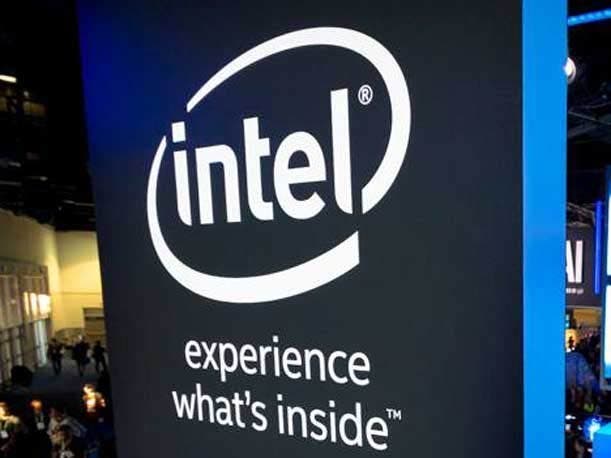Intel Must Spin Off Manufacturing Business, Ex-Board Members Say
by nlqip

In an opinion piece published Tuesday in Fortune, four former Intel board members say the U.S. government should use the nearly $20 billion in federal funding it promised to the semiconductor giant as leverage to force the chipmaker to split itself into two companies.
Four former Intel board members said the beleaguered semiconductor giant should spin off its manufacturing operation into an independent company to protect advanced chip-making in the U.S. and ensure a diversified supply chain for the tech industry.
The former board members—David Yoffie, Reed Hundt, Charlene Barshefsky and Jim Plummer—made the argument in an opinion piece published Tuesday in Fortune and said the U.S. government should use the nearly $20 billion in federal funding it promised to Intel as leverage to force the semiconductor giant to split itself into two companies.
[Related: Outrun By Nvidia, Intel Pitches Gaudi 3 Chips For Cost-Effective AI Systems]
“The government should be very clear on what it is willing to finance, including Intel’s corporate structure. This means that the government should insist that design and manufacturing at Intel be severed into two truly independent companies,” the board members wrote.
Intel did not respond to a request for comment.
The four former board members served on Intel’s board of directors for more than 70 years cumulatively, Yoffie said in a LinkedIn post. Their opinion piece was published more than two months after Intel said it would make organizational changes, cut more than 15,000 jobs and slash over $10 billion in costs to improve its profitability and competitiveness following a dire earnings report where it disclosed a $1.6 billion net loss.
Since Pat Gelsinger became Intel’s CEO in 2021, the company veteran has prioritized three interlocked objectives as part of his comeback plan: a revitalization of Intel’s advanced chip-making capabilities, a new push to build a contract manufacturing business that rivals Asian incumbents and a major manufacturing capacity expansion in the West.
But while Intel has said that it remains on track to introduce five advanced chip manufacturing processes in four years with the final node—Intel 18A—set for production next year, Gelsinger’s plan has come at a great financial cost, dragging down the company’s gross margins over the past three years.
And its contract manufacturing business, Intel Foundry, has suffered widening losses over the past three years. While Intel Foundry has named Amazon Web Services and Microsoft as key customers, the business has yet to realize any significant revenue from such deals, leaving it to rely on what has been a shrinking pool of revenue from Intel’s contracting chip design business, which mainly consists of the Xeon and Core CPU brands.
In their Fortune article, the former board members said while Intel’s dire earnings report from last quarter has made it an acquisition target, any prospective buyer likely wouldn’t have an interest in taking on the company’s money-losing manufacturing operation.
Leaving Intel’s manufacturing operation to an uncertain future is ill-advised, the former board members argue, because as the “only large-scale American manufacturer of advanced logic semiconductors,” it is of vital importance to the U.S. and the country’s ability to produce “advanced computing and defense-related technologies.”
It’s also important to ensure Intel Foundry’s long-term health, according to the former board members, to provide a Western counterbalance to the higher concentration of advanced chipmaking capacity in Asia, namely Taiwan’s TSMC, which is the world’s largest contract chip manufacturer thanks to big contracts with the likes of Nvidia, Apple and others.
While Intel has been working to protect and improve the prospects of its manufacturing operation, the former board members said the company’s actions to date—including a move in September to make Intel Foundry an independent subsidiary— have not been enough to establish the division as a successful contract chip manufacturer that can be trusted by TSMC customers like Nvidia and other third-party chip designers.
The reason external chip designers are hesitant to work with Intel Foundry, according to the former board members, is because the company “directly competes with them” through its chip design business, which is why they believe the U.S. should compel Intel to separate its chip design and manufacturing businesses into two companies.
“The government has the leverage to force Intel down a better path—and it must use it now,” the former board members wrote.
Source link
lol
In an opinion piece published Tuesday in Fortune, four former Intel board members say the U.S. government should use the nearly $20 billion in federal funding it promised to the semiconductor giant as leverage to force the chipmaker to split itself into two companies. Four former Intel board members said the beleaguered semiconductor giant should…
Recent Posts
- Arm To Seek Retrial In Qualcomm Case After Mixed Verdict
- Jury Sides With Qualcomm Over Arm In Case Related To Snapdragon X PC Chips
- Equinix Makes Dell AI Factory With Nvidia Available Through Partners
- AMD’s EPYC CPU Boss Seeks To Push Into SMB, Midmarket With Partners
- Fortinet Releases Security Updates for FortiManager | CISA
